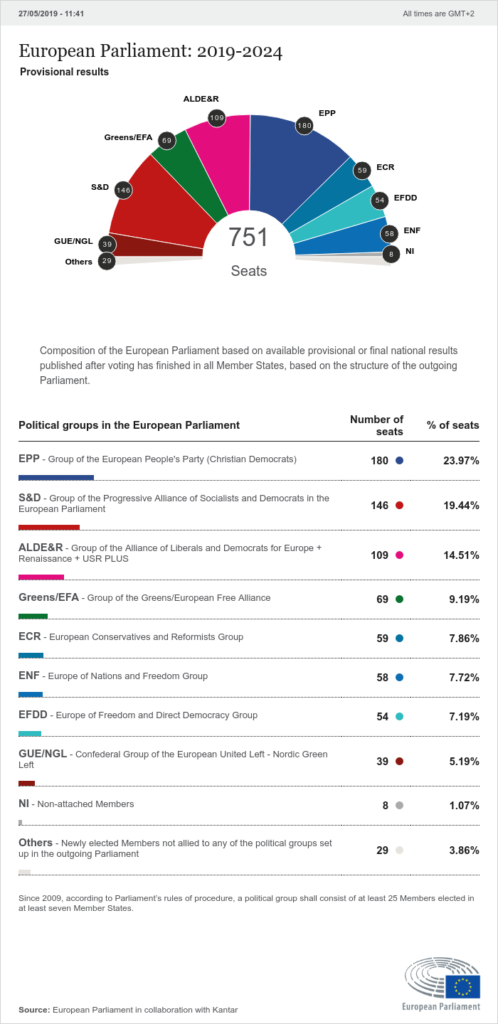Mairead McGuinness has been re-elected as an MEP in Midlands North West.
Ms McGuinness, who is currently vice-president of the European Parliament, was elected on the first count - with 134,630 votes.
The quota to reach was 118,986.
She is the first MEP elected for Ireland following the European Parliament elections on Friday.
Provisional results show Irish turnout for the vote was 49.3%.
Overall, EU-wide turnout stood at 50.9% - the highest level it has been in 20 years.
State of play after first count in Midlands North West. Transfers could be key but looks like McGuinness, Ming, Carthy and Maria Walsh #ep2019 pic.twitter.com/1zLQnm0fj8
— Seán Defoe (@SeanDefoe) May 27, 2019
The European Parliament elections seemed to deliver a blow to the two major party groups - the centre-right EPP and the centre-left S&D - that have controlled the chamber for four decades.
But a surge in the anti-EU far-right that many observers had predicted did not emerge.
Instead the pro-European liberal and green groups had as much to celebrate as the national populists.
With most results in, the informal "grand coalition" of the EPP and S&D lost the majority they have held since the first elections to the European Parliament in 1979.
The centre-right EPP will remain the largest party group, but is projected to win just 180 MEPs (24%) of the total 751 MEPs, down from 217 seats in 2014.
 Source: European Union
Source: European UnionThe centre-left S&D has come second in the parliament with 146 MEPs (20%).
In Germany, France and the UK, this was a bad election for social democrats.
But socialists did well in Spain, where Prime Minister Pedro Sanchez's PSOE topped the polls, and in Malta, where Prime Minister Joseph Muscat's Labour Party won 55% of the votes.
As the EPP and S&D will not control a parliamentary majority, they will have to work together with other party groups.
The strengthened liberal group ALDE (109 seats), which has joined forces with Emmanuel Macron's En Marche, could be the king-makers in the new parliament.
Combined, these three pro-EU centrist party groups control 435 seats (58%), enough to dominate policy-making.
Additional reporting: IRN









